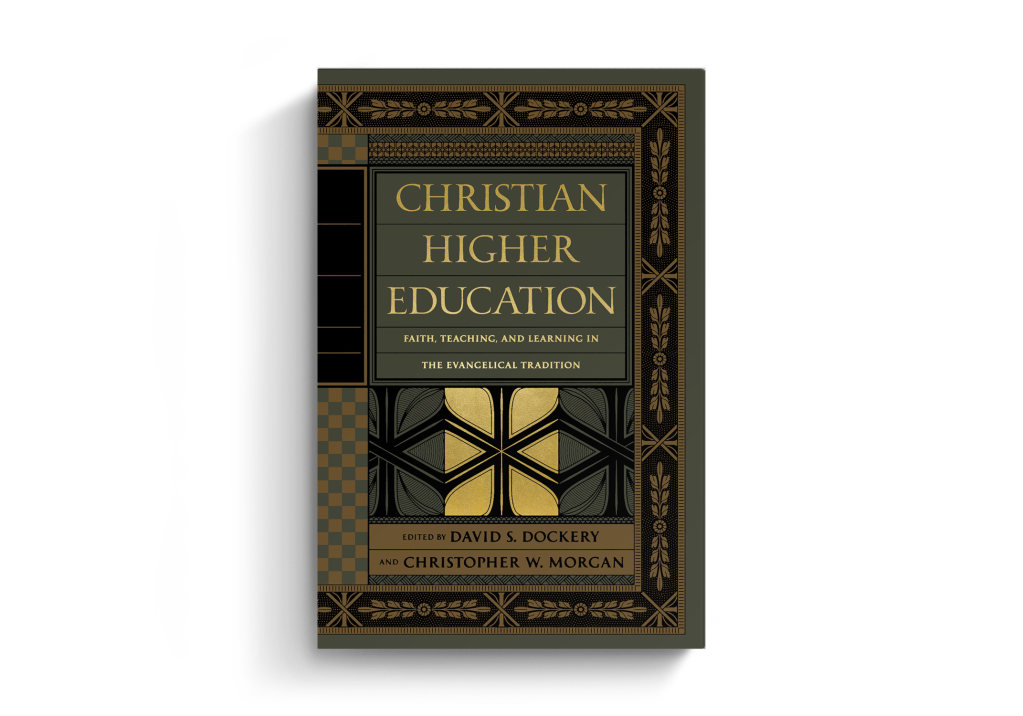
Christian Higher Education is an impressive compilation of scholars from a wide variety of disciplines. The book seeks to instruct us on how a Christian worldview informs and affects individual academic disciplines in Christian higher education – from faith in teaching to mathematics to philosophy.
Each chapter serves as an introduction to a topic related to Christian higher education. The chapters also contain lists of resources for further study and lists of questions for further reflection. These elements of the book are particularly helpful for discussion groups or for the reader who wants to go deeper into the subject of each chapter.
I enjoyed reading this book. However, I may not represent the average reader since I am extremely interested in Christian higher education. Those not interested in Christian higher education may not find this book particularly gripping. The book would be strengthened to have a conclusion. The introduction is effective for setting the stage, but after all the chapters on so many topics and authors, a conclusion at the end would serve to wrap up the entire discussion well.
I appreciate this book consistently discussing the importance of Christian educational institutions remaining connected to churches. Here are a few of my favorite quotes about that.
“Evangelical institutions, while not churches, are an extension of the churches, the academic arm of the kingdom of God… Our dream calls for Christian colleges and universities to be not only Christ centered but also church connected.” (p. 25)
“Christian higher education is a uniquely academic form of Christian discipleship that builds on and extends the formation that happens in local congregations, directing its application into many of the disciplines and professions to which believers are called.” (p. 55)
“We live within a contemporary Christianity that has lost the ideal of the centrality of the local church in the life of the Christian. If the Christian college movement is to truly serve the church, it will fan the flame of church participation through modeling the habit of church attendance and the practice of service in the church.” (p. 494)
I also applaud many of the authors in this book seeking to connect their academic discipline with the metanarrative of Scripture – often categorized in the four concepts of creation, fall, redemption, and new creation. Here again are some quotes I like.
“Christians in higher education often use some version of the biblical storyline ‘chapters’ of creation, fall, redemption, and restoration as a harmonizing framework for interpretive integration… [this framework] is an attempt to enable the Christian professor to remember God’s creation intentions, account for sin’s travesty, celebrate new life, and hope in the promise of renewal.” (p. 150)
“So what is the purpose or end to which our leadership development is aiming? The mission of God provides the foundation from which all leadership training should be oriented. It offers not only a sense of priority and direction but also a profound orientation and perspective on how to pursue our leadership goals. Principally, the mission of God invites us into a story of redemption, reconciliation, and restoration. God’s salvific work has been an ongoing process long before we encountered his good news. The narrative proceeds our individual stories, and it will surely continue after our earthly stories end.” (p. 389)

Here is a list of the chapters and contributors.
Part 1: The Theological Shape of Christian Higher Education in the Evangelical Tradition
1. Christian Higher Education: An Introduction (David S. Dockery)
2. Knowing And Loving God: Toward A Theology of Christian Higher Education (Nathan A. Finn)
3. The Authority of Holy Scripture: Commitments for Christian Higher Education in the Evangelical Tradition (John D. Woodbridge)
4. The Study of Holy Scripture and the Work of Christian Higher Education (George H. Guthrie)
5. Made in the Image of God: Implications for Teaching and Learning (John F. Kilner)
6. Foundations of Christian Higher Education: Learning from Church History (Bradley J. Gundlach)
Part 2: Faith, Teaching, and Learning in the Evangelical Tradition
7. The Christian Worldview for Faith, Teaching, and Learning in the Evangelical Tradition (Christopher W. Morgan)
8. Faith and Teaching (Donald C. Guthrie)
9. Faith and Learning (Laurie R. Matthias)
10. The Importance of Research for Teaching and Learning (David W. Pao and Chrystal L. Ho Pao)
11. Teaching and Learning in the Humanities (Gene C. Fant Jr.)
12. Teaching and Learning in the Sciences (Glenn A. Marsch)
13. Teaching and Learning in Mathematics (Paul R. Bialek)
14. Teaching and Learning in the Social Sciences (Eric L. Johnson and Russell D. Kosits)
15. Teaching and Learning in Philosophy (Chris L. Firestone)
16. Teaching and Learning in Music and the Arts (Don P. Hedges)
17. Teaching and Learning in Education (Karen A. Wrobbel)
18. Teaching and Learning in Adult and Professional Programs (Timothy L. Smith)
Part 3: Faith, Teaching, and Learning: Applications and Implications for the Campus, the Church, the Marketplace, and the World
19. Faith, Learning, and Catechesis (S. Steve Kang)
20. Faith, Learning, Worship, and Service (Taylor B. Worley)
21. Faith, Learning, and Living (Felix Theonugraha)
22. Teaching, Learning, and Leadership (Katherine M. Jeffery)
23. Faith, Learning, and the World (Greg Forster)
24. Faith, Ethics, and Culture (Micah J. Watson)
25. Faith, Teaching, and Learning in Service to the Church (Thomas H. L. Cornman)
26. The Importance of Intercultural and International Approaches in Christian Higher Education (Peter T. Cha)
27. Missions, the Global Church, and Christian Higher Education (Bruce Riley Ashford)
I received a copy of this book from Crossway in exchange for an honest review.

